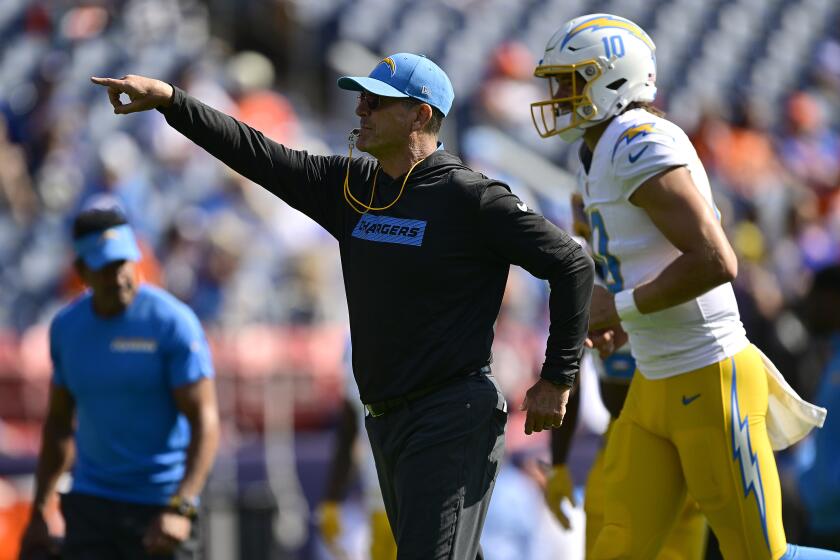Column: A friend gave me the courage to openly discuss Parkinson’s disease with others
It was July 2006.
My wife, Hedy, and I embarked on a 10-day tour of Switzerland.
Two months earlier I’d been diagnosed with Parkinson’s disease. Switzerland afforded us a respite from harsh reminders of my pernicious new life companion.
For a couple of years prior to my diagnosis, I’d experienced telltale signs of the disease. At the time, my dad was in the final stages of Parkinson’s. I knew what to look for.
I saw a doctor twice during those two years, but he was unable to diagnose me. Still, I knew what I knew.
Finally, in May 2006, I saw a neurologist and she confirmed my suspicions. To a layperson I seemed normal. Though my symptoms were subtle they were obvious to me.
Parkinson’s is a progressive neurological disorder with no known cure. It causes nerve cells to die or become impaired, and patients exhibit such symptoms as tremors or shaking, slowness of movement, rigidity or stiffness, loss of facial mobility and balance difficulties. Other signs include a shuffling gait, cognitive problems and muffled speech.
Once the diagnosis was confirmed, I elected to hold back any public pronouncement. I wasn’t ready to tell the world, except for close family members.
So Hedy and I left for Switzerland.
Following a 13-hour flight we landed in lovely Zurich, where we joined our tour.
We relished isolation in Switzerland’s breathtaking alpine environment, which was decidedly a good thing given my state of mind.
Within a day or two of commencing the tour we met a lovely couple from New Jersey, Rob and Val. They were slightly older, in their mid-60s. Val was a retired teacher so she immediately hit it off with Hedy who, at the time, was still teaching.
Rob was a Rutgers University grad, and football fan, so we talked lots of pre-season college football during the trip.
About the fourth day out, after having had a pleasant dinner and evening stroll with the couple, I confided to Hedy that I thought Rob might have Parkinson’s.
“Why would you say that?” she asked.
“Look at him when he walks; he doesn’t swing his arms.”
“Maybe that’s his particular gait,” she responded.
“But he also seems stiff in the neck and shoulders, and he has a mask. He doesn’t show facial expressions when he talks.”
Hedy then quite reasonably said, “Why don’t you ask him?”
Oh no, I couldn’t do that. I’d be crossing a squishy social boundary.
People don’t walk up to other people and say, ”Excuse me, do you have Parkinson’s?”
Except, of course, they actually do (I’ve since discovered).
So, I went from day five of the tour to day nine talking and joking with Rob but never uttering the “P” word.
I didn’t wish to offend. Besides, I didn’t yet “own” my own diagnosis.
On the morning of day 10 we boarded the tour bus in Lucerne for a 90-minute ride to the Zurich airport. I slipped into a window seat, but Hedy went back a few rows to chat with Val.
As the coach pulled out, Hedy returned to our seats. She leaned over and said, “The answer is yes.”
“Yes to what?” I mumbled absentmindedly.
“Rob has Parkinson’s.”
A moment later Rob was standing by my seat. “Hedy, would you mind sitting with Val? I need to talk to Jim.”
We conversed non-stop for the next 90 minutes, and for another 15 in front of the terminal. Rob was the first Parkinson’s patient — except for my dad — I’d ever spoken to. He provided me with a wealth of clinical and anecdotal information.
He reassured me, which is what I needed most. I think often of him now and am grateful for his generosity.
We returned to our busy lives — he and I were both still working — and kept in touch by email.
Then I retired, purchased a new laptop and promptly lost all my email addresses.
Now, a dozen years later, I think of Rob and wonder. How’s he doing? Still fighting the good fight, I’m sure!
By the way, I’ve gotten over my skittishness about talking to others about Parkinson’s. I openly share my story.
I have Rob to thank for that.
Jim Carnett, who lives in Costa Mesa, worked for Orange Coast College for 37 years.
JIM CARNETT, who lives in Costa Mesa, worked for Orange Coast College for 37 years.
All the latest on Orange County from Orange County.
Get our free TimesOC newsletter.
You may occasionally receive promotional content from the Daily Pilot.



